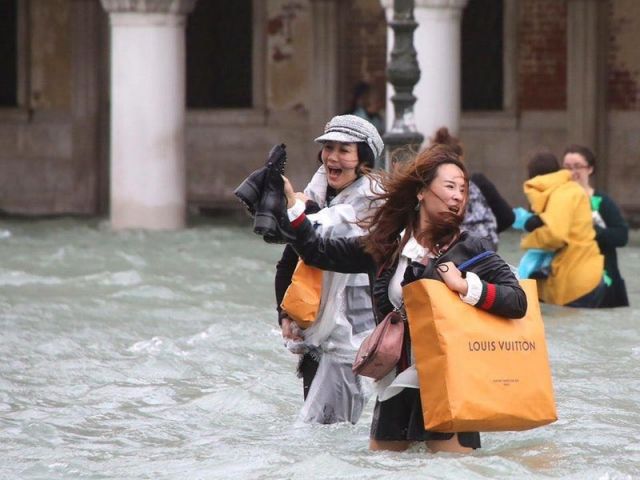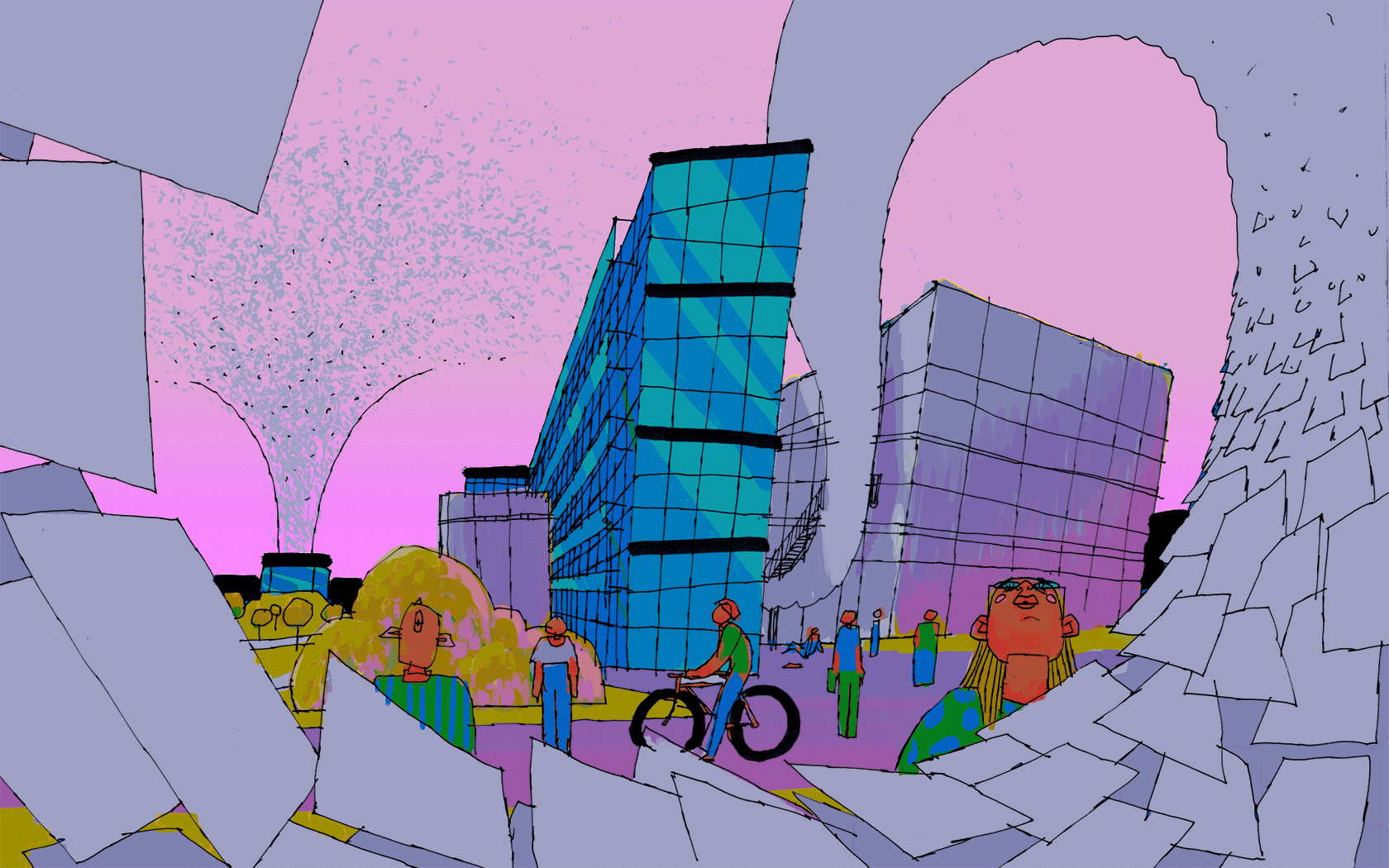CBS student about the new CBS minor: Decades of evidence and research have been thrown overboard, and a blind eye is being turned towards capitalism as a potential solution for global challenges

CBS student Nikolaj Bjørk Christensen asks in this comment: You must ask yourself whether there is any room for teachers or students who challenge that mindset? (Private photo)
CBS is now offering a minor based on criticising capitalism. And the conclusion has clearly been predefined: Capitalism has failed and needs to be either re-imagined or totally replaced. But no serious university should have such a blinkered approach to the world that it predefines a political premise as the basis for a minor.
Comment | 10. May 2021
Comment by Nikolaj Bjørk Christensen, CBS student and town council candidate for Venstre in Slagelse Municipality. The comment was featured in Ræson on 27.4.21.
HOW WOULD YOU REACT, if your university exam consisted of writing an essay titled: “Describe why capitalism has failed as an economic system, and reimagine whether it can be reformed “from within” or do we need to implement a totally new socio-economic system to make it more just and sustainable?”
And your grades were defined based on your ability to: “Challenge the boundaries of the current capitalist system and discuss the opportunities and limitations for change agents to positively impact it” and “Identify the potentials and the shortcomings of the various efforts to reimagine capitalism”. You would probably raise your eyebrows and ask yourself if you were really sitting an exam at one of the top educational institutions in the country. Because when the task is set with such an unequivocal premise, and the two only solutions proposed are that capitalism should be reformed from within, whatever that means, or totally replaced, it does not leave much room for free thought among the students. The conclusion seems predefined.
The conclusion seems predefined: Capitalism has failed
If you started writing the essay and reached a conclusion such as: “Capitalism has not failed, so there is no need to reform society according to a totally new economic system”, a top grade would probably be out of reach. Since how likely is it that the teachers would reward such a fundamental challenge of their premise and take a critical view of themselves? I would find that unlikely.
Nevertheless, that seems to be reality for the students who will be studying a brand new minor at CBS with the delightfully bite-size name: “Minor in transforming business and organizations to build sustainable and democratic economics.”
Here they will be having fun with three subjects, and the first they will get to grips with is: “Re-Imagining capitalism. Towards Just and Sustainable Futures”, which also represents the theoretical and empirical grounding for the newly established minor.
In this subject, you learn to “understand the ongoing multiple crises on the economic, social and environmental level and in order to envision sustainable and just futures, an understanding of the dominant socio-economic system, namely capitalism, is a fundamental and foundational prerequisite”.
The conclusion seems predefined: Capitalism has failed and all the injustice and crises in the world, from “pandemics, rising sea levels, gender inequality, business models based on exploitable labor, economic instability and digital rabbit holes”, as the lecturers put it in an interview about the new minor, cannot be solved until we re-imagine or replace capitalism. And the lecturers are, in fairness, very clear about their intentions: “In order to fundamentally change, we need to critically explore and understand how our current economy functions, and now the students can do that and address those questions at their own university,” as Mathias Hein Jessen says in the interview.
You must ask yourself whether there is any room for teachers or students who challenge that mindset?
THE CRISES AND GLOBAL CHALLENGES are serious, and of course, we should solve them, but writing off capitalism as a solution in advance, is deeply flippant of a university. The conclusion is clearly framed and, as a minimum, fundamental changes are required, with capitalism being reformed from within, whatever that means, or totally replaced. In effect, capitalism has been written off before the first day studies begin.
You must ask yourself whether there is any room for teachers or students who challenge that mindset? Will other economic systems suffer a similar fate under other predefined predicates, with the result: that minors become an orgy of political consensus devoid of free debate? Because when the only material on the curriculum is criticism of capitalism, can we even talk about this being a serious minor?
The field of study has been restricted, and all other economic mindsets cut away in a one-sided focus on criticising capitalism. Decades of evidence and research have been thrown overboard, and a blind eye is being turned to capitalism as a potential solution for solving global challenges.
Capitalism can no longer be used, despite its worldwide success in recent centuries, when all other economic systems have had to concede defeat. What about the billion people who have been helped out of poverty over the past 30 years? Forgotten. What about all the medicine and all the vaccines developed as a result of private companies? Forgotten. What about the enormously high standard of living and the historical peace on large parts of the planet? Forgotten. All these result from capitalism giving individuals the incentive to produce, invent or do business with each other to improve their own lives. Meanwhile, it has created probably the most positive side-effect ever – that the world has become a better place for just about everyone.
In their eagerness to criticise capitalism and ignore all its positive results, they are also overlooking the huge potential capitalism creates for solving the other crises in the future. It provides great potential for solving the climate crisis without also reducing our standard of living, as we have been doing in Denmark for the past 30 years, during which time we have increased our GNP significantly, and our greenhouse gas emissions have generally traced an opposite trend.
Suddenly, the academic virtues, with the university as an investigative institution built on a critical, scientific approach to the world, have been thrown overboard in favour of a particular world view
In their eagerness to criticise capitalism and ignore all its positive results, they are also overlooking the huge potential capitalism creates for solving the other crises in the future. It provides great potential for solving the climate crisis without also reducing our standard of living, as we have been doing in Denmark for the past 30 years, during which time we have increased our GNP significantly, and our greenhouse gas emissions have generally traced an opposite trend.
SUDDENLY THE CLASSIC academic virtues, with the university as an investigative institution, built on a critical, scientific approach to the world, have been thrown overboard in favour of a particular world view. Suddenly the answer is predefined. Suddenly, you no longer have to investigate and challenge the world you live in to reach the right answers.
That does not mean that our universities should be banned or discouraged from criticising capitalism. Of course not. All serious universities deal with investigating the world as it is with a critical and scientific approach. But no serious university has such a narrow approach to the world that it includes a predefined political premise as the grounding for a minor, and replaces the empirical and theoretical background with a predefined conclusion.
We must ask ourselves: Is that how we should shape our education system?
And if you are still in doubt, scroll back to the introduction and replace “capitalism” with “democracy” and “economic system” with “social system”, or “capitalism” with “socialism”, for that matter
And if you are still in doubt, scroll back to the introduction and replace “capitalism” with “democracy” and “economic system” with “social system”, or “capitalism” with “socialism”, for that matter.
For while the premise changes, the task will not, noticeably, and instead you will be studying the minor: “Reimagining Democracy. Towards Just and Sustainable Futures.”
And while sitting an exam you will be tasked with writing an essay titled: Describe why democracy has failed as a social system, and re-imagine whether it can be reformed from within or do we need to implement a totally new social system to make it more just and sustainable?”
Making that simple replacement reveals the new minor’s blinkered view of the world. Because while the questions, technically, are open questions, they lead to closed conclusions. And isn’t that the exact opposite of what our universities are put on this planet to do? To investigate the world with open questions, free of prejudice, critically and scientifically, to subsequently reach often completely unexpected conclusions.

































































































































Regarding the comment from Astrid Sofie Vestergaard:
The system that has lifted Chinese out of poverty, is that the Chinese government has embraced capitalism and moved away from a socialist economy in some regards.
I agree with you that the establishment of international organizations and trade deals that are responsible for world peace and the immense increase in world GDP. I would argue that they are a result of capitalism. If we weren’t connected in an international economic capitalist system, then the incentives to world peace and trade wouldn’t be the same, and then the GDP growth wouldn’t be near the same. You look at the countries who tried to stay out in certain periods of the history.
Im not “turning a blind eye once the system fails”. I specifically state: “That does not mean that our universities should be banned or discouraged from criticising capitalism”. My argument is that we should look at all the nuances when we study the world we live in, and the interview in Wire about the minor and the course descriptions doesn’t aim at doing that, as i read it.
I also stated that: “The crises and global challenges are serious,” and i agree with we have a challenge with climate change, biodiversity loss, extreme inequality that we must solve. But i don’t agree that the solution is to write capitalism off in a predefined closed conclusion that is written before the courses has started.
Regarding Co2 emissions and capitalism i write that: “as we have been doing in Denmark for the past 30 years, during which time we have increased our GNP significantly, and our greenhouse gas emissions have generally traced an opposite trend”. Do you really dispute that as false? Then you could back it by some evidence and link to it. I would love to read it.
The same goes as to the claim of: “Science has established that the currently dominating world system of capitalism is failing to secure human and environmental health and well-being”. Thats a bold claim and i would dispute it. Again: Please back it by some evidence and link to it. I would love to read it.
I don’t believe in the continuation of the status quo. I never said that. By i believe in solving our issue with a broad look at the possible solutions, and maybe i could be that capitalism is the best solution?
It can very well be argued that the capitalist system has driven much positive development in the world, but capitalism cannot take credit for all the benefits that Mr. Christensen mentions. Firstly, the majority of the billion people that has been lifted out of poverty in the past 30 years are Chinese, and their fortune must then be ascribed to the socialist Chinese system. You can furthermore argue that it is just as much the establishment of international organizations and trade deals that are responsible for world peace and the immense increase in world GDP.
But even if you accept the premise that capitalism can be ascribed much positive development that does not justify turning a blind eye once the system fails. I will not go into detail with the many scientifically established ways in which capitalism is currently failing, but I’m sure Mr. Christensen can learn about it in the new minor. You probably already know the major issues: climate change, biodiversity loss, extreme inequality etc. Contrary to Mr. Christensen’s claim, capitalism has not managed to decouple CO2 emissions and GDP growth. The reason that it might look that way is because some countries (including DK) has outsourced their “dirty” industries to third world countries and thereby removed those emissions from their emissions balance sheet. If you look at DK’s total emissions including both domestic and foreign, the picture looks muck different. For example, a new report from the WWF appoints DK as having the third highest deforestation footprint measured per inhabitant.
I will therefore argue that Mr. Christensen’s criticism is completely misguided. Science has established that the currently dominating world system of capitalism is failing to secure human and environmental health and well-being. Hence, any serious university should encourage their students to think out of the box and come up with new innovative solutions as to how we can build resilient, healthy, fair societies. In this sense, I completely agree with Mr. Christensen’s point that universities should be “an investigative institution, built on a critical, scientific approach to the world” and that you should “challenge the world you live in to reach the right answers”. However, contrary to Mr. Christensen, I do not believe that this line of argumentation supports a continuation of the status quo…